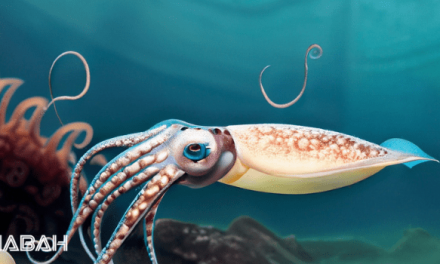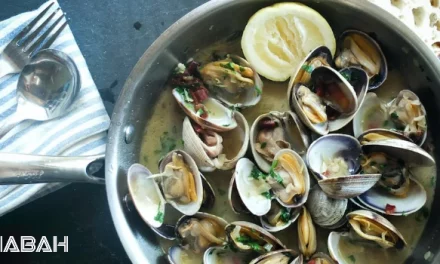As a seafood enthusiast, I have always been fascinated by the diverse culinary traditions surrounding halal seafood. In this comprehensive guide, we will delve into the intricate details of what makes fish, crab, lobster, shark, octopus, and more permissible under these dietary laws, providing you with a deeper understanding and appreciation for these delectable delicacies.
What You Need to Know about Fish, Crab, Lobster, Shark, Octopus, and More
Seafood is an important part of many cuisines around the world. However, for observant Muslims, determining whether a certain seafood is permissible or “halal” is essential. The Quran and Hadith provide guidance on permitted and prohibited foods, but scholars have disagreed on the classification of various types of seafood. This article will examine the principles used to evaluate the permissibility of different marine animals and outline the stances of various Islamic schools of thought.
Halal is an Arabic term meaning “permissible” under Islamic law. For a food to be halal, it must come from an animal slaughtered according to the requirements of shariah. Generally, any animal with fangs or claws is considered haram or impermissible. However, the regulations concerning seafood are more complex. According to Wikipedia,:
Most Sunni Muslim schools of thought adhere to the interpretation that all non-haram fish and shellfish are halal. This means that most seafood is permissible, with a few minor exceptions.
For observant Muslims, knowing whether a certain seafood is halal is an important part of adherence to religious dietary restrictions. This article will clarify which types of seafood are considered permissible and which are prohibited according to different Islamic legal perspectives.
Types of Halal Seafood
There are several broad categories of seafood, each of which has different considerations regarding permissibility in Islam.
Fish
The majority of scholars agree that finfish are universally halal in islam.
It is permissible to eat all types of fish except those that have toxins or poison. It is haraam to eat such fish.
However, there are a few exceptions to this general rule:
- Eel and hagfish are considered haram by many scholars due to their snake-like appearance.
- Sharks are also prohibited by some schools of thought since they are predators.
Shellfish
Shellfish can be divided into three categories:
-
Crustaceans like crab, lobster and shrimp are largely considered haram,
The majority of scholars conclude that crustaceans such as crabs, lobsters, crawfish and shrimps are from the category of “insects of the sea” and hence, are haram.
-
Molluscs including clams, mussels, oysters have some disagreement, but many permit them.
- The permissibility of cephalopods like squid, octopus and cuttlefish is also debated among scholars.
Other Sea Life
There is a lack of consensus on whales, dolphins and related sea mammals. Amphibians like frogs and turtle are agreed to be haram.
Principles Used to Determine Seafood Is Halal Or Haram
Islamic scholars use various principles and methodologies to analyze the permissibility of seafood. Some of the main approaches are:
Analogical deduction (qiyas)
This involves comparing sea creatures to analogous land animals based on their attributes and characteristics.
Scholars look at the characteristics of the fish or seafood and determine whether they are similar to land animals that are clearly haram or halal.
For instance, sharks are predators and have fangs so they are considered haram by analogy to predatory land animals.
Interpretation of religious texts
Verses from the Quran and Hadith mentioning “the food of the sea” and “the game of the sea” are subject to exegesis by scholars to determine which creatures are included in this category.
Some Hadith mention that ‘its water is purifying and its dead are permissible (to eat)’. This forms the basis for many scholars to permit consumption of all types of fish and seafood.
Scavengers vs. predators
Some scholars look at whether a sea creature is a scavenger or active predator to evaluate its permissibility. Scavengers are more likely to be considered halal than predators like sharks.
Differing Opinions Among Islamic Schools
The four major Sunni schools of Islamic jurisprudence have some differences in their rulings concerning seafood:
Hanafi
The Hanafi school is the most restrictive,
According to the Hanafi sect, only fish that has scales is considered Halal. They believe that scales signify the fish lived in water, and thus it is different from land animals.
They prohibit all sea animals except those with scales like finfish.
Maliki
The Maliki school prohibits consumption of arthropods like crab, lobster and shrimp but permits fish and molluscs like clams, oysters and octopus.
Hanbali and Shafi’i
The Hanbali and Shafi’i schools of thought have the most lenient approach among Sunni Muslims.
According to the Shafi’i and Hanbali branches of Sunni Islam, all non-poisonous/hazardous aquatic animals are halal, whether they are predator or not. This includes prawns, oysters, lobsters, crabs and more.
They allow consumption of crustaceans and cephalopods that the other schools prohibit.
Frequently Asked Questions: Is Seafood Halal?
The term “halal” refers to what is permissible or lawful according to Islamic law. Seafood, in general, is considered halal for Muslims to consume unless it falls into the category of haram (forbidden). However, there are certain conditions to be met for seafood to be considered halal.
What does Islam say about seafood?
Islam allows the consumption of seafood that is permissible (halal) and condemns the consumption of seafood that is forbidden (haram). It is important for Muslims to understand the guidelines related to seafood consumption outlined in Islamic teachings.
Are shrimp, crab, and lobster halal?
Shrimp, crab, and lobster are considered seafood and are generally permissible (halal) for Muslims to eat. However, within the Hanafi school of thought, some scholars consider them Makruh (disliked) due to their appearance, while others permit their consumption. It is advisable to consult knowledgeable scholars for specific rulings.
Can Muslims eat octopus, squid, and oyster?
Octopus, squid, and oyster are also considered seafood. According to the majority of Islamic scholars, consuming octopus and squid is permissible (halal) as long as they are caught alive. Oysters, on the other hand, are generally considered haram as they are filter feeders and do not fall under the category of halal seafood.
Is it permissible to eat all types of seafood?
Not all types of seafood are automatically halal. The general rule is that any seafood derived from the sea (e.g., fish, shrimp, crab) is considered halal as long as it is not haram (forbidden), meets the conditions of Islamic slaughter, and is not contaminated with haram substances.
What are the conditions for seafood to be considered halal?
To be considered halal, seafood should be obtained from sea animals that are permissible to consume according to Islamic teachings. Additionally, the seafood must be slaughtered in the appropriate Islamic manner, without any explicit or implicit haram substances, and not be cross-contaminated with non-halal food items.
Can Muslims consume shellfish?
Shellfish, such as shrimp, crab, and lobster, are generally permissible (halal
Conclusion
In summary, there are some general principles that apply to determining the halal status of seafood in Islam:
- Finfish are broadly permitted, with a few exceptions like eel and hagfish
- Crustaceans like crab and lobster are more commonly prohibited
- Molluscs and cephalopods have disagreement among scholars
- Whales, dolphins and other sea mammals have unclear permissibility
The major Islamic schools take different approaches:
- Hanafi school is most restrictive, only allows scaled fish
- Maliki prohibits arthropods but allows molluscs
- Hanbali and Shafi’i schools allow most types of seafood
For Muslims seeking to adhere to religious dietary law regarding seafood, there are a few options:
- Take a conservative approach and only eat fish with scales to avoid prohibition
- Follow a particular school’s rulings on permitted seafood
- Use discretion based on the range of scholarly opinions
In the end, educating oneself on the different perspectives can help observant Muslims make informed decisions about seafood consumption based on their personal level of religious observance. There are reasonable arguments allowing most types of seafood, but some controversial creatures like sharks and crabs may be best avoided by those wanting to exercise caution.





